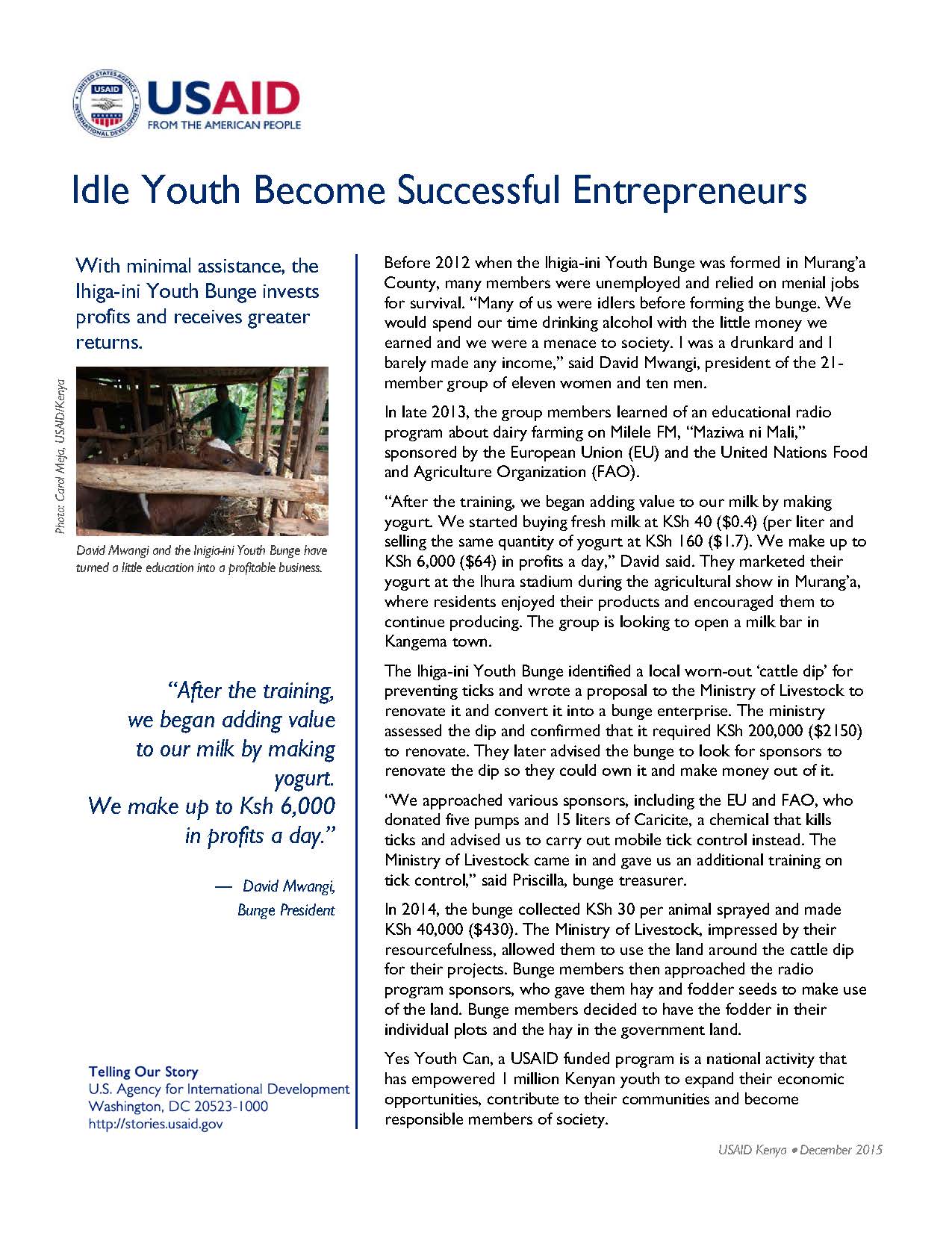Before 2012 when the Ihigia-ini Youth Bunge was formed in Murang’a County, many members were unemployed and relied on menial jobs for survival. “Many of us were idlers before forming the bunge. We would spend our time drinking alcohol with the little money we earned and we were a menace to society. I was a drunkard and I barely made any income,” said David Mwangi, president of the 21- member group of eleven women and ten men.
In late 2013, the group members learned of an educational radio program about dairy farming on Milele FM, “Maziwa ni Mali,” sponsored by the European Union (EU) and the United Nations Food and Agriculture Organization (FAO).
“After the training, we began adding value to our milk by making yogurt. We started buying fresh milk at KSh 40 ($0.4) (per liter and selling the same quantity of yogurt at KSh 160 ($1.7). We make up to KSh 6,000 ($64) in profits a day,” David said. They marketed their yogurt at the Ihura stadium during the agricultural show in Murang’a, where residents enjoyed their products and encouraged them to continue producing. The group is looking to open a milk bar in Kangema town.
The Ihiga-ini Youth Bunge identified a local worn-out ‘cattle dip’ for preventing ticks and wrote a proposal to the Ministry of Livestock to renovate it and convert it into a bunge enterprise. The ministry assessed the dip and confirmed that it required KSh 200,000 ($2150) to renovate. They later advised the bunge to look for sponsors to renovate the dip so they could own it and make money out of it.
“We approached various sponsors, including the EU and FAO, who donated five pumps and 15 liters of Caricite, a chemical that kills ticks and advised us to carry out mobile tick control instead. The Ministry of Livestock came in and gave us an additional training on tick control,” said Priscilla, bunge treasurer.
In 2014, the bunge collected KSh 30 per animal sprayed and made KSh 40,000 ($430). The Ministry of Livestock, impressed by their resourcefulness, allowed them to use the land around the cattle dip for their projects. Bunge members then approached the radio program sponsors, who gave them hay and fodder seeds to make use of the land. Bunge members decided to have the fodder in their individual plots and the hay in the government land.
Yes Youth Can, a USAID funded program is a national activity that has empowered 1 million Kenyan youth to expand their economic opportunities, contribute to their communities and become responsible members of society.








Comment
Make a general inquiry or suggest an improvement.